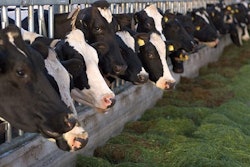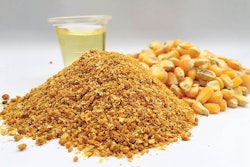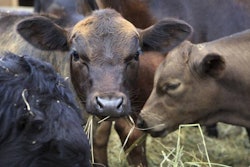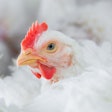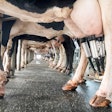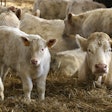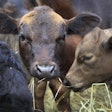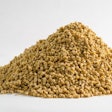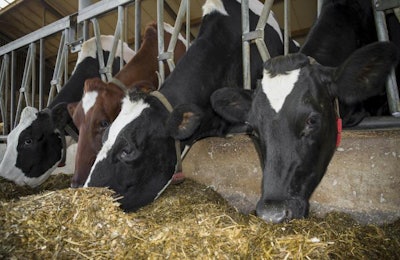
Ireland’s agriculture minister has allocated EUR1.5 million (US$1.85 million) to set up a Fodder Import Support Measure.
The measure, announced by Minister for Agriculture, Food and the Marine, Michael Creed, T.D., will help to reduce the cost of imported forages, such as hay, silage, and haylage, from outside the island of Ireland for hard-pressed livestock farmers.
According to the Irish agriculture department, after a prolonged cold winter and recent heavy rains, farmers in the Republic of Ireland have been struggling to find sufficient forage for their livestock, some of which have been housed since August of last year.
Subject to EU State Aid rules, the measure will initially support the importation of 20,000 metric tons of fodder up to the end of this month. The situation will be reviewed until the crisis is over, said Creed.
He said the measure is a direct approach, operating through dairy co-operatives but benefiting farmers who urgently need forage.
It follows other support measures introduced last January. These include Fodder Transport Support, which has now been extended to cover the whole country from the original geographical coverage of the North and West, and adjustment of the minimum distance requirement to 50 kilometers (31 miles).
Also aimed at relieving the crisis situation, the minister announced he had prolonged the grazing period for Traditional Hay Meadows to May 1. This offers the opportunity for livestock farmers to have their animals on these pastures without losing the “meadow” status of the land.
“I will continue to monitor the fodder situation closely and work with all stakeholders until we have successfully come through this trying period,” said the minister.
Other agencies in Ireland have also been supporting farmers during the recent challenging weather conditions.
The Road Safety Authority has been adopting a pragmatic approach recently to driver hours compliance with driving and rest periods, for example, in a move that has been welcomed by the Irish Farmers’ Association (IFA).
IFA is hoping this approach will be extended if the unfavorable weather continues, and is calling on the Irish government to make early decisions over deadlines for slurry spreading so there is no knock-on effect on fodder supplies for next season.
Weather-related challenges do not stop at international borders.
Impacts of the recent poor weather conditions were also being addressed by the Ulster Farmers’ Union, representing producers in neighboring Northern Ireland, when they met political leaders last week.
The organization has set up a “Fodder Map” on its website to help put livestock producers in need of forage in contact with those who have supplies available.
Taking the risk out of forage supply agreements
Ireland’s Agriculture and Food Development Authority, Teagasc has been encouraging arable and livestock farmers to work together in a number of ways to ensure future fodder requirements are met.
Seed suppliers, merchants, farming advisers and farmers are already taking action to ensure supplies for next winter, it says. Sometimes an intermediary is required to allay the fears of the livestock farmer over the quantity, quality and cost of the forage, as well as those of the tillage farmer regarding payment and delivery.
Starting point for the livestock farmer is a winter feed budget for the year ahead, according to Tom O’Dwyer, head of Dairy Knowledge Transfer at Teagasc. Taking into account any changes in herd size and making allowances to cover adverse weather, this process should identify any gaps in the farm’s supply and whether extra fodder might be needed.
To be successful, farmers participating in these agreements need to develop a level of trust in each other. Teagasc is working with Irish dairy cooperative Dairygold on a pilot program to help producers from both sides overcome their fears.
For corn, price and payment structure will be agreed at the outset, and conditions put in place to optimize the crop’s balance of yield and costs. The co-operative will weigh each load before delivery, and carry out analyses of dry matter and starch content.
In this way, the scheme aims to reward the corn grower for producing a quality crop, and the dairy farmer will be charged a fair price.

